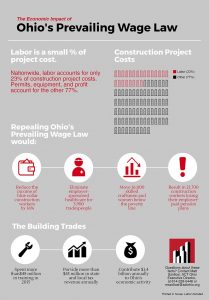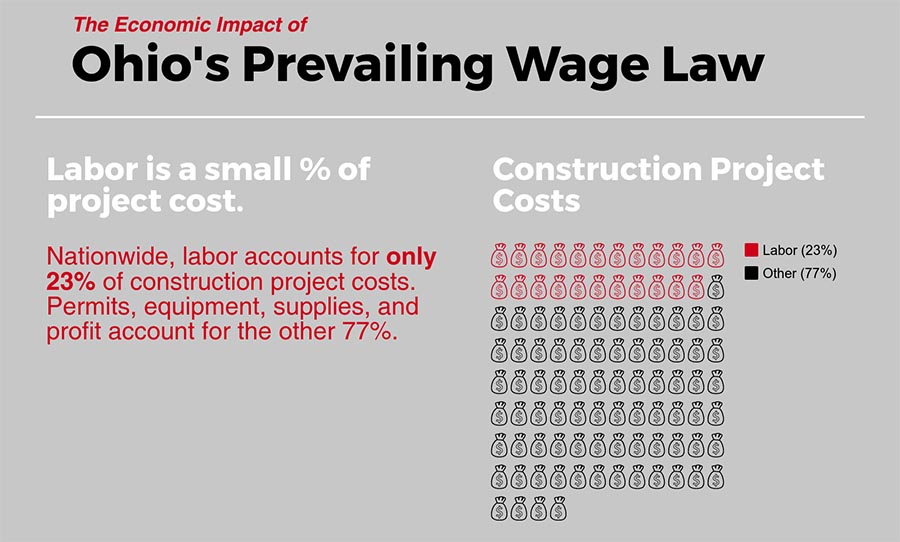 A new study completed by professors at Bowling Green State University, Kent State University, Colorado State University, and the Midwest Economic Policy Institute confirms that Ohio’s Prevailing Wage law provides strong support for the middle class and strengthens the Ohio economy.
A new study completed by professors at Bowling Green State University, Kent State University, Colorado State University, and the Midwest Economic Policy Institute confirms that Ohio’s Prevailing Wage law provides strong support for the middle class and strengthens the Ohio economy.
The study reveals that weakening or replacing Ohio’s Prevailing Wage standards would not result in taxpayer savings, but would actually increase taxpayer burdens to offset the significant reductions in construction wages. The study concludes that in states without Prevailing Wage laws, construction workers earn 15% less, placing many below the poverty line; increasing reliance on entitlements like food stamps and Earned Income Tax benefits.
“Construction is a tough, competitive business, largely driven by market forces,” said ACT Ohio Executive Director Matthew Szollosi. “However,” Szollosi continued, “Wages and benefits amount to only 23% of overall project costs. The notion that significant savings can be derived by cutting workers’ pay is false.”
The analysis also details the negative impact of weakening and/or repealing Prevailing Wage laws with regard to veterans, who work in construction at higher rates than non-veterans.
Based on Ohio Department of Jobs & Family Services’ records, the study finds that in 2015, 83% of Ohio’s construction apprentices graduated from building trades training programs – including 94% of female apprentices and 88% of minority apprentices. Further, the building trades and their signatory contractors contributed $1.75 billion in worker fringe benefits and training in 2015.
“The building trades invested nearly $50 million in training last year,” said Szollosi. “These are private dollars invested in workforce development by our members and contractors. We have opposed, and will continue to oppose, efforts that require taxpayers to subsidize construction apprenticeship training.”
Currently, the building trades have more than 80 apprenticeship training centers across the state, many of which have partnered with local community colleges. An analysis of other states within the study found that apprenticeship training falls by 40% after Prevailing Wage repeal.
ACT Ohio strongly encourages our leaders to reject any legislative efforts to weaken or repeal Ohio’s Prevailing Wage laws.
“Attacks on Prevailing Wage will result in significant wage reductions for construction workers. The quality of taxpayer-funded work will decline, and the door will be kicked wide open for even more abuse of the system through the use of undocumented workers,” Szollosi said.




